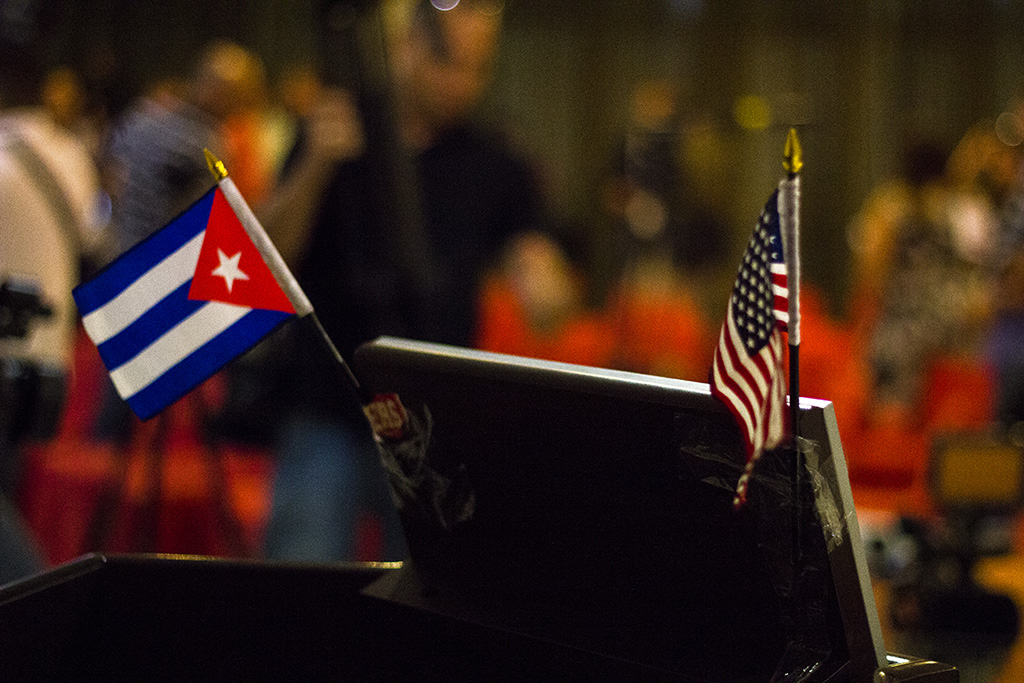
Is the Supreme Court passport decision a threat to Helms-Burton? We think so.
The Supreme Court’s decision this week in what is called the Jerusalem Passport Case poses a clear danger to the Helms-Burton law, and it will help to accelerate the unraveling of what has held together our nation’s counterproductive policies against Cuba.
The hardliners feared and predicted exactly this fallout from a decision by the Supreme Court that was adverse to their interests.
First, let’s start with a brief description of the case.
Although Israel considers Jerusalem to be its capital, Presidents of both parties since Harry Truman have maintained a neutral position on Jerusalem’s status pending a peace settlement. In 2002, Congress, as theWashington Post explained, “passed a law that, among other things, allows Jerusalem-born applicants for U.S. passports to record their place of birth as ‘Israel’ if they so request.” The intent was to nudge U.S. policy in the direction of Israel’s position on Jerusalem. President Bush, who signed the provision as part of a larger appropriation measure, nonetheless issued a public statement opposing it because it “impermissibly interferes with the President’s authority to conduct the Nation’s foreign affairs.”
SCOTUS Blog takes up the story here: “Shortly after his birth in Jerusalem in 2002, Menachem Zivotofsky’s parents applied for a U.S. passport for their infant son,” exercising their right under the Congressional passport provision “to ask the State Department to designate ‘Israel’ as Menachem’s place of birth.”
The State Department turned them down, citing the U.S. policy since 1948 “of not recognizing any country as having sovereignty over the holy city of Jerusalem. The Zivotofskys went to court to challenge that decision.”
For nearly 13 years, the case went up and down the judicial and appellate food chain. But the closer it got to the Supreme Court, the more anxious the cross-cutting coalition of pro-Israel and anti-Castro Members of Congress became.
What Senate and House supporters of the passport feared most was the possibility that the President could be given what their amicus brief called “carte blanche to treat as unconstitutional—and to refuse to comply with—any Act of Congress that it determines touches on recognition policy.”
In its 6-3 decision, however, the Supreme Court held the President has exclusive power to grant formal recognition to a foreign sovereign. Justice Anthony Kennedy, writing for the majority, said “The formal act of recognition is an executive power that Congress may not qualify.” In what could almost be construed as a reference to the Cuba negotiations, the Court writes, “The President is capable, in ways Congress is not, of engaging in the delicate and often secret diplomatic contacts that may lead to a decision on recognition.”
At the same time, the Supreme Court left in place all the powers the Congress shares with the President on foreign policy – to declare war, regulate foreign commerce, fund the armed forces, the right to vote down ambassadors, the power to provide no funds for an embassy –the tools that the hardliners are using in the appropriations process right now to try and turn back the Cuba policy reforms ordered by President Obama after he announced our diplomatic breakthrough with President Castro.
But, time and again, the Court makes clear that “Recognition is a ‘formal acknowledgement’ that a particular entity possess the qualifications for statement’ or ‘that a particular regime is the effective government of a state’,” and that those powers belong to the President of the United States alone.
Now, go read Helms-Burton, the law signed by President Bill Clinton, which arrogates to the Congress a lot of authority for determining when – and under what circumstances – the United States can resume normal relations.
The law says the president cannot color outside the Congressional drawn lines. Only when the government in Cuba fits the definition of a government in transition or a democratically-elected government can the President recognize Cuba, trade with Cuba, negotiate with Cuba over Guantanamo, allow Cuba to enter the World Bank or other financial institutions, etc.
This is what Helms-Burton was also all about; placing conditions on the independent authority of the President and preventing him or her from engaging in diplomacy or normalizing relations with Cuba, until Cuba fit the definition that Congress wrote into the law. It was seizing for itself the recognition authority that the Supreme Court ruled this week is assigned to the President alone.
The whole architecture of the Cold War Cuba policy is coming apart. It has no public support to speak of. President Obama has used his executive power to liberalize travel and trade. Engagement is as popular in Florida as it is anywhere in the United States, and it is even more popular in Cuba. U.S. travel to the island is surging; businesses are chomping at the bit to make contacts and sign contracts. Members of Congress who marched in lock-stop with the hardliners are changing their minds. And now the law which was the backstop for all of this – and for all the people who said, the power lies with Congress and Congress ain’t budging – the passport case proved to be the sum of all their fears.
In fact, the President gets to decide which governments we recognize; a principle, the court tells us, dating back to the first presidential administration. “The debate,” the court writes, arose in 1793 after France had been torn by revolution. Once the Revolutionary Government was established, Secretary of State Jefferson and President Washington, without consulting Congress, authorized the American Ambassador to resume relations with the new regime.” When Citizen Genet was welcomed in Washington, France was recognized.
Yes the Senate through its confirmation power can stop the President from having a U.S. Ambassador in Cuba, but it cannot stop the Cuban Ambassador from being welcomed by the President.
If it worked for George Washington and Citizen Genet, it will work for Barack Obama and Jose Cabañas.
(From: Cuba Central)

